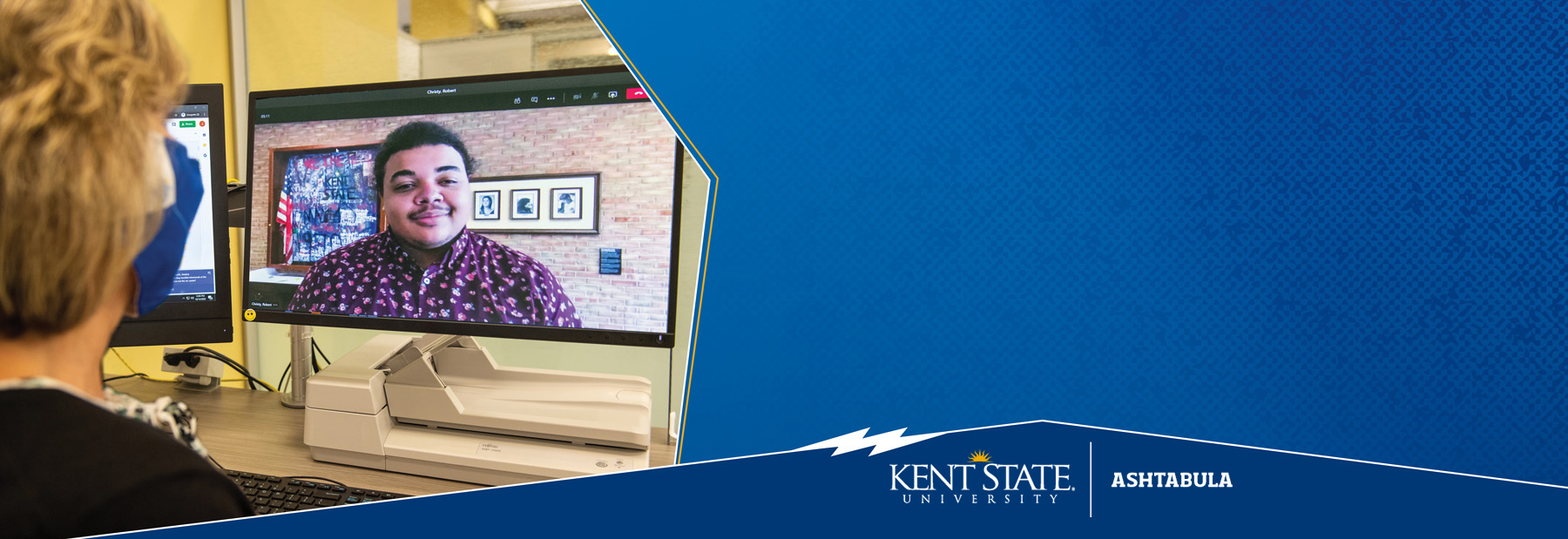

BEFORE YOU
WITHDRAW
Let's Talk.
ARE YOU FEELING STRESSED ABOUT ...
-
YOUR COURSE PERFORMANCE?
-
YOUR FINANCES?
-
YOUR PHYSICAL OR EMOTIONAL HEALTH?
If you're thinking you may want to withdraw from a course this semester, before you take action, let's talk. Kent State Stark has dedicated resources - for those exact reasons - to support you.
We’re here for you because Flashes take care of Flashes.
BE AWARE OF WITHDRAWAL DEADLINES
Know when the deadline is to withdrawal from courses. See the section WITHDRAWAL FROM ANY OR ALL COURSES THAT MEET THE FULL TERM USING FLASHFAST for dates:
- Fall Important Dates
- Spring Important Dates
- Flexibly scheduled courses can be found in the .
We’re here to help! Kent State has dedicated resources just for these reasons — to support you. Reach out, let’s talk and see how we can help. The Flashes in the administration, faculty and staff will help you keep moving forward and we’ll do everything we can to help you graduate.
Your Studies
If you’re struggling in your coursework or feeling overwhelmed by studying, before you withdraw, reach out to your instructor to discuss your difficulties and your progress. Also, talk with your advisor to see what your options may be, including staying in the class, or possibly withdrawing.
Need Advising Help
Find an Advisor
ph: 440-964-4217
acadvising@kent.edu
Connect to the Academic Success Center
Contact the Academic Success Center for tutoring (drop-in, scheduled and e-tutoring) as well as to receive study tips, academic coaching and supplemental instruction — personalized for your needs. Our mission is to empower students to become independent learners through engaging support programs through a strong academic support experience. Services included tutoring, testing, supplemental instruction, the Writing Center, Student Accessibility Services and more!
Academic Success Center Website
440-964-4304
ksuasuccess@kent.edu
Your Finances
If you’re considering withdrawing because of financial concerns or due to a change in your family’s household income, Kent State Ashtabula is here to help and can find possible solutions and options for your situation.
Withdrawing from a course can impact your aid for the current term, could cause you to have a balance due, and can even impact your eligibility for aid in the future. It's important to always check with Student Financial Aid before you make any schedule adjustments.
Lisa Jackson
Financial Aid Representative
Phone: 440-964-4213
Email: ashtabulafinancialaid@kent.edu
Helpful Resources
Withdraw vs. Drop; How to Withdraw; Financial Impact of Withdrawing
Future Aid Impact on Withdrawing – Satisfactory Academic Progress
General Financial Aid Information
Important to Note
-
A withdrawal is shown as a “W” on the student transcript.
-
A withdrawal is NOT calculated in a student’s GPA.
-
A withdrawal DOES count as an attempted course.
-
A withdrawal COULD cause you to owe a balance, depending on your situation and timing.
Your Health & Well-being
Your overall well-being is key to your success. There are resources on campus that help you feel your best.
- Your Mental Health - Feeling overwhelmed? Depressed? Before you withdraw, talk with a counselor at Counseling Services. Call 440-964-4319 or email ashtabulacounseling@kent.edu to schedule an appointment. For more information, visit www.kent.edu/ashtabula/counseling
- Access Resources: For help accessing resources such as food, clothing and housing, please call 211 or connect via their website at
- Your Physical Health/Medical Concerns - Feeling tired? Run down? Before you withdraw, talk with someone at DeWeese Health Center. They can check your overall health, and see if you’re getting enough sleep, eating properly and staying active. Call 330-672-2322 for an appointment.
Ashtabula Campus Counseling Services
⇒ Connect With Your Instructor
Instructor Emails and Office Hours can be located on the Faculty Directory Page
Faculty Testimonial
Laurie Bentley | Senior Lecturer | Communication Studies | Kent State Ashtabula
I teach classes in public speaking, intercultural communication, gender and communication, interpersonal communication, small group communication, and media studies.
• If you want to do well in your courses - and we as faculty are trying to teach you to do well in all of your endeavors – I would encourage you to reach out to your professors and ask questions. This not only helps you understand the subject or an assignment better, but it lets us know you are trying to do your best and taking the class seriously.
• Sometimes students are intimidated by their professors or even afraid they are going to insult us or hurt our feelings by asking us questions or telling us they don’t understand something. Always keep in mind that a big part of our job is to answer your questions. We want to make sure you understand the information and the assignments in each of your classes. Asking questions is never a bad thing. In fact, it’s a good thing. It shows us that you are engaged and thinking about the class and the information we are covering. From that perspective it’s almost a compliment when you ask us questions!
• When reaching out to faculty members, always make sure you are fully informed. Double check your syllabus or the assignment description before you ask about it, and then be prepared with specific questions. That helps you be clear in what you are asking and helps us answer you that much more clearly.
• Different professors have different preferences when it comes to how they communicate with their students. I always encourage my students to talk to me after class or during office hours, even when the class is a remote one. I genuinely like talking to my students and getting to know them. Talking face-to-face, even when it’s done remotely, is a good way to connect and to make things seem a little more natural and normal.
